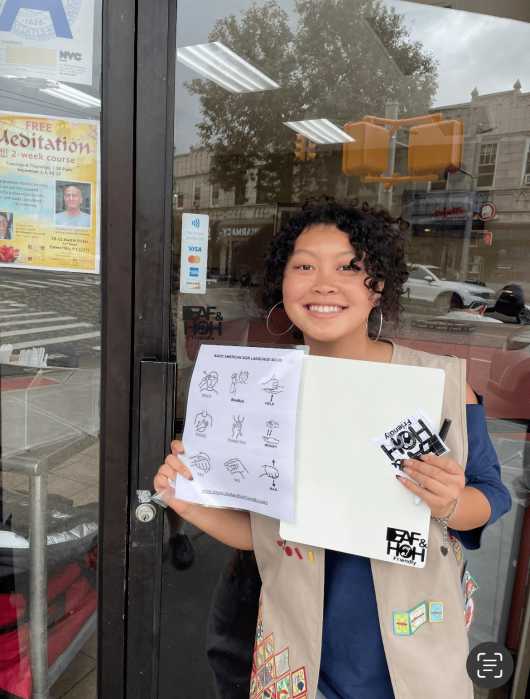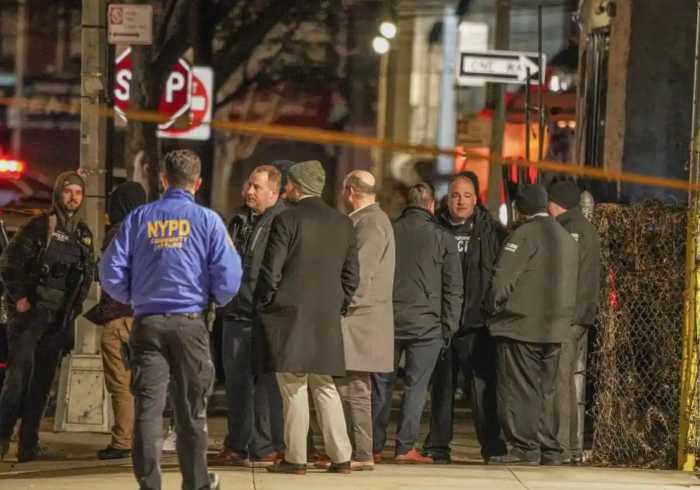Domestic violence is not a new or recent phenomenon; sadly it cuts across generations and cultures. But as common as domestic violence is, what is just as common is the silence that accompanies and emboldens it.
This is the silence of parents who painfully ignore the abuse of a daughter out of shame or powerlessness; or the silence of a neighbor who hears screams from the apartment next door and rationalizes not calling the police by saying “this isn’t my problem.”
The fact, of course, is that domestic violence is a problem for us all. And, by not offering our help to victims or educating our sons that violence against women is unacceptable, we become accomplices to these horrific crimes.
Looking at the numbers behind domestic violence reveals a situation that can only be described as a crisis for New York’s women and families.
There are nearly a half million acts of domestic violence reported in New York State every year.
Statistics show us that 1 in every 4 women will experience physical abuse at some point in their lifetime. Two out of every five women who are killed in our city are murdered by their husbands.
What is worse is that victims are often doubly victimized by financial institutions who say that divorce reflects poorly on personal credit scores, or medical insurance companies who may deny coverage because domestic violence can be listed as a pre-existing condition.
Add to this the shame and fear associated with admitting that one is being abused, and it is no wonder that so many women stay with their abusers, often at the greatest risk to their own physical and psychological well being and that of their families.
As New Yorkers, we have recently been reminded of the serious consequences of domestic violence; how it negatively affects psychology and that it does transcend generations, with the suicide death of Annie Morrell Petrillo, who jumped off the Tappan Zee Bridge, 16 years after her mother Anne Scripps Douglas, an heir to the Scripps newspaper fortune, was killed by her husband.
Petrillo, who could no longer bare the pain or memories of her mother’s senseless death, left behind her own 13-year-old son, now to be remembered as the newest victim of an act of violence, that occurred two generations before him, from circumstances not in his control.
In the Latino community in particular, many women endure the most astonishing levels of violence and abuse because cultural norms regarding betrayal, family honor and the entitlements of machismo, make it virtually impossible to escape.
The recent conviction of New York State Senator Hiram Monserrate for committing an assault on his girlfriend – parts of which were caught on a frightening videotape and broadcast for the world to see – provides us with an opportunity to shatter the taboo that surrounds domestic violence.
Here is our chance to put an end to our complicity.
State Senator Monserrate was elected to support and defend the laws of New York State and to lead by example. Instead, he engaged in an act of violence that undermined any of the positive work he had done for our community in the past and forfeited his right to ask for our support.
For decent and fair-minded New Yorkers and especially for Latino New Yorkers, Senator Monserrate’s conviction provides an opportunity we cannot pass up.
We must speak up plainly and forcefully.
We must decide whether we prefer to be accomplices to abusers or whether we have the courage to offer support and comfort to the abused. I think the choice is clear.
Jose Peralta is the Assemblymember for the 39th District in Queens. He has announced he is going to challenge Senator Hiram Monserrate for his Senate seat in the 2010 September primary.


































